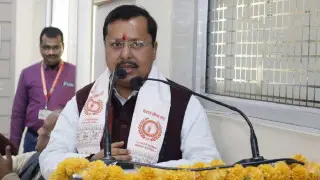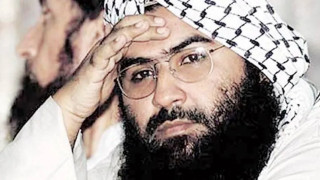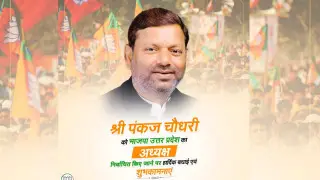
K Kavitha (ANI)
New Delhi: In a crucial turn of events, the Supreme Court has expressed serious doubts about the impartiality of the Enforcement Directorate (ED) and the Central Bureau of Investigation (CBI) in the high-profile Delhi liquor policy case, potentially impacting future developments in the investigation. The court questioned the methods used by these agencies as they investigated opposition figures and others involved. Justices BR Gavai and KV Viswanathan, sitting on a two-judge bench, pointed out that reliance solely on statements from former accused individuals who have become 'approvers' or prosecution witnesses might not ensure fairness.
"You have to be fair... a person who incriminates himself has been made a witness? You cannot pick and choose... What is this fairness?" the court inquired.
The scrutiny followed a challenge by the prosecution against the bail plea of Bharat Rashtra Samithi leader K Kavitha. Kavitha had been arrested by the ED in March in connection with the liquor policy case, with subsequent arrest by the CBI the following month.
Additional Solicitor General SV Raju referred to "independent evidence" provided by former accused Bucchi Babu and Raghav Magunta Reddy, who became government witnesses and received pardons in April last year and March this year, respectively. However, senior advocate Mukul Rohatgi, representing Ms Kavitha, argued that many statements from these individuals were also used as evidence in related cases, including that involving Delhi Chief Minister Arvind Kejriwal, who was arrested shortly after Ms Kavitha.
Rohatgi argued that calling Kavitha the main person in charge is unfair. He said, 'You call Kejriwal the main person, then Sisodia, and now Kavitha? But there's no real proof, only statements from people who got deals in exchange for their testimony.
The court agreed, saying, what actual evidence shows Kavitha was involved in the crime? The judge wanted to know why the prosecution relied so heavily on questionable statements.
The court's observations are crucial in the context of the liquor policy case, where much of the evidence relies on statements from former accused-turned-approvers. Similar arguments were presented in bail pleas filed by Mr. Kejriwal and Mr. Sisodia before the Supreme Court. Mr. Sisodia was granted bail earlier this month, with the court noting his prolonged detention without a trial and asserting that continued imprisonment would constitute a "travesty of justice." Meanwhile, Mr. Kejriwal, who contests the charges based on approvers' statements, remains in jail. He has received bail in the ED case but not yet in the CBI case.
In a separate ruling, the Supreme Court rejected the prosecution's claim that Kavitha destroyed evidence by formatting her mobile phones. Justice Viswanathan said that phones are personal and people often delete messages. I myself delete group messages from school and college groups because they post so many. This is normal behavior and anyone in this room would do the same.
The court ruled that formatting a phone doesn't necessarily mean someone is hiding something. Justice Viswanathan asked, Do you have any other evidence that shows there was incriminating content? If not, all you're showing is that the phone was formatted.
Following these critical observations, Ms Kavitha was granted bail. The court acknowledged her extended detention without a trial and highlighted that holding her in prison, given the "likelihood of trial be in near future is impossible," would infringe on fundamental rights. Additionally, the court referred to legal provisions under Section 45 of the Prevention of Money Laundering Act, which allows for certain categories of accused, including women, to be released on bail without fulfilling the usual twin requirements.
Despite the prosecution's argument that Kavitha’s status as an educated woman and former MP excluded her from being a 'vulnerable' person, the Supreme Court disagreed. It criticized the lower court’s decision, stating it was erroneous to deny bail based on Kavitha’s education and background. "We find the learned single bench totally misdirected itself," the top court concluded.













Copyright © 2025 Top Indian News
